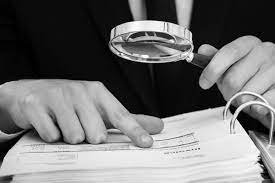What is the role and responsibilities of a lead auditor?
The Role and Responsibilities of a Lead Auditor
A lead auditor plays a crucial role in ensuring an organization meets regulatory and industry standards. They oversee audit processes, assess compliance, and drive continuous improvement. Many organizations rely on Global Standards, a leading service provider, to help professionals achieve the role and responsibilities of a lead auditor and excel in this role.
Key Responsibilities of a Lead Auditor
1. Planning and Preparing Audits
A lead auditor designs the audit plan, defining objectives, scope, and criteria. They identify key areas to review and allocate resources efficiently. The auditor ensures the team understands the audit process and objectives before execution. The role and responsibilities of a lead auditor
2. Leading Audit Teams
The lead auditor guides the audit team, assigning tasks and monitoring progress. They ensure team members follow procedures and maintain objectivity. Strong leadership helps the team work cohesively and deliver accurate results. 3. Conducting Audits Effectively
During audits, the lead auditor examines processes, documents, and systems for compliance. They interview personnel, observe operations, and gather evidence. The auditor identifies non-conformities and suggests corrective actions. Role and responsibilities of a lead auditor
4. Reporting Findings Clearly
After the audit, the lead auditor compiles a detailed report highlighting findings, risks, and recommendations. They present results to management, ensuring transparency and accountability. The report serves as a roadmap for improvements.
5. Following Up on Corrective Actions
The lead auditor tracks the implementation of corrective actions. They verify whether the organization addresses non-conformities and meets standards. Continuous follow-up ensures long-term compliance and operational efficiency.
Skills Required for a Lead Auditor
Strong Analytical Abilities
A lead auditor must analyze complex data, identify trends, and assess risks accurately. Analytical skills help them make informed decisions and provide valuable insights.
Excellent Communication
Clear communication ensures stakeholders understand audit findings and recommendations. The lead auditor must articulate technical details in simple terms for management and staff.
In-Depth Knowledge of Standards
A lead auditor must master relevant standards, such as ISO 9001 or ISO 14001. Global Standards offers training programs to help professionals gain expertise and earn ISO Lead Auditor Certification.
Leadership and Team Management
Leading an audit team requires strong leadership skills. The auditor must motivate the team, resolve conflicts, and ensure efficient collaboration.
How Global Standards Supports Lead Auditors
Global Standards provides comprehensive training for aspiring lead auditors. Their programs cover audit methodologies, compliance requirements, and best practices. By partnering with Global Standards, organizations ensure their auditors meet international benchmarks. The role and responsibilities of a lead auditor
A lead auditor ensures compliance, improves processes, and mitigates risks. Their role demands technical expertise, leadership, and strong communication. Organizations can rely on Global Standards to equip professionals with the skills needed for ISO Lead Auditor Certification and excellence in auditing.









No Comments